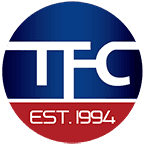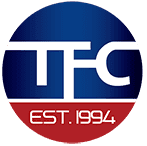In times of financial urgency, auto title loans have emerged as a popular avenue for getting quick funds, leveraging the title of one’s vehicle as collateral.
It is important to comprehend the legal landscape surrounding these loans to ensure consumer protection.
This article goes into the legal framework and regulations governing auto title loans, aimed at safeguarding the rights and interests of borrowers.
State-Specific Legislations For Title Loans
Complying to state-by-state regulations governing vehicle title loans is vital for borrowers and lenders.
These regulations cover aspects such as maximum loan amounts, interest rates, repayment schedules, and other crucial elements, varying from one state to another.
Awareness and compliance with these rules foster ethical lending practices and protect consumers from potential exploitation.

Maximum Title Loan Amounts
State laws dictate the maximum loan amount permissible in vehicle title loans, serving as a protective measure against burdensome debt.
The value of the vehicle used as collateral determines this maximum loan amount. Complying to these regulations, lenders ensure that borrowers are not overburdened with unmanageable debt obligations.
Interest Rates and Fee Structures
Regulations also govern the fees and interest rates applicable to auto title loans, aiming to prevent predatory lending practices.
By imposing limits on interest rates and mandating transparent disclosure of associated fees, borrowers are empowered to make informed decisions and steer clear of debt traps.
Repayment Terms and Options
State laws outline the repayment options and terms for borrowers, covering aspects such as loan duration, payment frequency, and provisions for early repayment or refinancing.
These regulations ensure that borrowers have manageable repayment structures and are not subjected to overly stringent terms.
Consumer Protection Measures
Legal regulations governing auto title loans encompass various consumer protection measures to ensure fairness, transparency, and recourse. These measures include:
- Disclosure Requirements: Mandating lenders to provide clear and comprehensive disclosures regarding loan terms, interest rates, costs, and consequences of non-payment or default.
- Prohibition of Unfair Practices: Enforcing laws prohibiting unfair and deceptive lending practices, such as excessive interest rates or misleading loan terms, safeguarding borrowers from predatory tactics.
- Repossession Procedures: Establishing specific procedures that lenders must follow when repossessing a vehicle due to non-payment or default, including providing advance notice and allowing borrowers the opportunity to remedy the default.
Consulting Legal Professionals
Given the complexity of vehicle title loan laws, borrowers are advised to seek guidance from legal professionals or reputable lenders compliant with the law.
Legal experts can offer invaluable assistance in understanding rights and obligations associated with auto title loans.
Conclusion on Legal Guidelines and Title Loans
Understanding and complying to legal guidelines and regulations governing auto title loans are essential for both borrowers and lenders.
These regulations aim to protect consumers from predatory practices, ensure transparency, and promote fair lending.
Consulting legal professionals can provide clarity and ensure that borrowers enter into auto title loan agreements with full awareness of their rights and responsibilities.
TFC Title Loans in the broker that you need, with our large network of lenders, you will only be working with trustworthy lenders.


